One of the greatest things about the product management space is the wide availability of game-changing information out there. We’re thrilled by the sheer volume of product management books published each year. And while some books are written specifically with product managers in mind, others carry valuable product management insight without advertising the fact.
For this year’s list of product management books, we dug a little deeper in our selections. We looked beyond the obvious choices. While our shortlist is designed to serve product managers, the books themselves aren’t necessarily advertised for such an audience. Rather, they’re positioned as development, startup, and general management reads.
We hope you enjoy this year’s list. And for the first time, we made sure to include one piece that is free to download. So you can start your next book as soon as, well… just a couple minutes from now!
Getting Real by 37signals
Written by the founders of web development company, 37signals, this is one of few product development books that distills 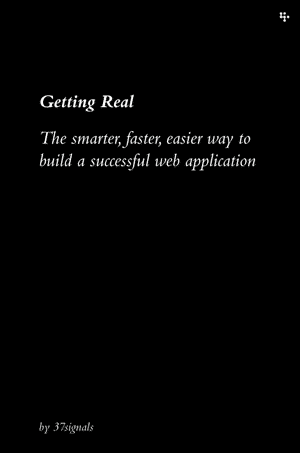 concepts we too often take for granted. Take, for example, the chapter titled “Build Less,” which encourages product managers and product developers to underdo the competition.
concepts we too often take for granted. Take, for example, the chapter titled “Build Less,” which encourages product managers and product developers to underdo the competition.
At face value, a principle like this can sound counterintuitive. But it explains the success of just about any company that chooses simplicity over feature bloat. Think Warby Parker, Uber, Netflix. They each do one thing really well, and that’s why they win.
At its core, Getting Real is all about cutting to the chase. Less talk, more doing. For a precise explanation of what the book represents, look no further than page 2:
“Getting Real is about skipping all the stuff that represents real (charts, graphs, boxes, arrows, schematics, wireframes, etc.) and actually building the real thing.”
If you’re inspired, then you’ll probably jump into the full book (digital copies can be downloaded for free).
Crossing the Chasm by Geoffrey Moore
It’s a classic in the world of startups and business. But we’d be remiss not to include it in this list for product managers. Because at its core, Geoffrey Moore’s ‘Crossing the Chasm‘ emphasizes a timeless approach to how how you should view products: the parts make up the whole.
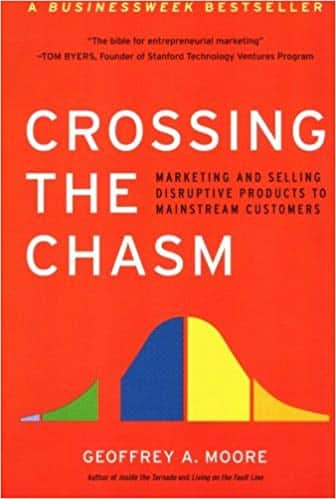
The infamous “chasm” represents the difficult-to-bridge gap between early adopters and early majority customers. So many companies and products fail to cross this chasm. But why?
Moore offers a thesis that breaks down into multiple explanations, many of which are of value to product managers. One of his biggest takeaways is the notion that everything makes up the product. Marketing, sales, support, engineering, QA. It all matters. Products offer experiences, and anything that affects the experience is important.
The book dives into detail regarding the different ways early adopters and early majority customers view products. Whereas early adopters are optimistic about new ideas in general, early majority customers are much more pragmatic. To cross the chasm, a mindset shift is required, wherein more emphasis is given to the perspective of early majority customers.
High Output Management by Andrew Grove
Don’t be fooled by the boring title. Product managers should read Andrew Grove’s ‘High Output Management‘ to get a better understanding of why their role is so important. As Grove points out, management in and of itself determines the quality of the end product.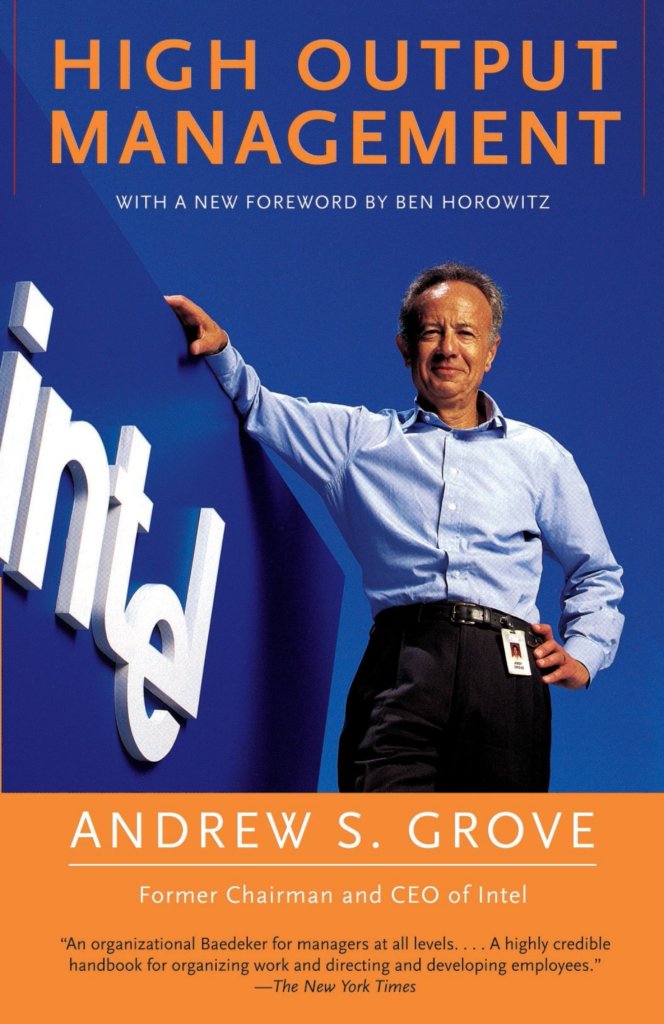
In chapter one, Grove presents a compelling metaphor to illustrate his key point. Think about a breakfast restaurant. Just like ideas, the raw materials are cheap and hold little value. The execution of turning those materials into a finished product is what matters. To do this effectively, thorough preparation and diligence is required.
In continuing with the metaphor, if management fails early on, derailment of the entire product is inevitable. What if half your day’s shipment of eggs are rotten and you forgot to check? As the chef begins throwing out the spoiled product, the cost of each wasted item grows. And as inventory becomes increasingly limited (and the crisis at hand becomes more apparent), the value of each egg multiples tenfold.
For those not-so-risk-averse product managers out there, this is the read for you. Don’t let negligence be your product’s kryptonite.
Good Strategy/Bad Strategy by Richard Rumelt
If there’s one thing that matters more than anything for product managers, it’s strategy. But not all strategies are created equal. This is the thesis behind Richard Rumelt’s ‘Good 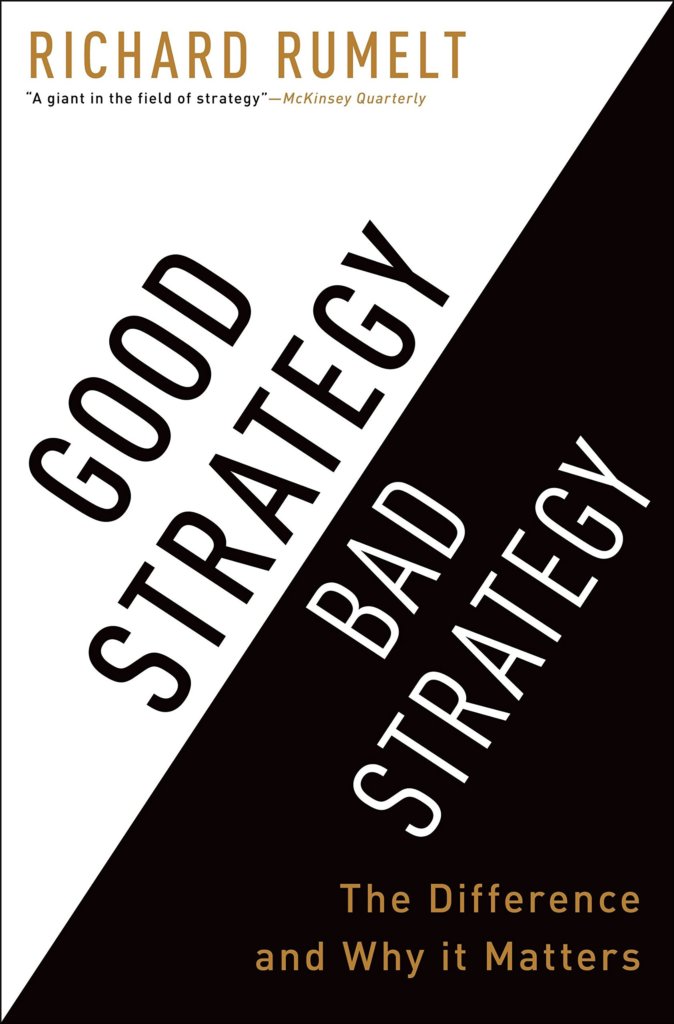 Strategy/Bad Strategy.’
Strategy/Bad Strategy.’
Rumelt walks through the process of setting aspirational yet attainable goals and breaking down the steps to get to the finish line. As he sees it, strategy has structure. Setting a goal to build a billion dollar company might sound exciting, but it’s a worthless strategy without a framework in place to achieve it.
This might be a dense read for some, but the stories throughout keep it captivating. For example, take the story of President Kennedy’s ambitious goal of a moon landing. The announcement shocked much of the world, as many believed it was impossible. But what most didn’t know is that by the time he announced, Kennedy knew for a fact that the mission was indeed possible, and he had already mapped out the steps to getting there.
Essentialism: The Disciplined Pursuit of Less by Greg McKeown
If you’ve been involved in product management for any time, you know that prioritization skills are in high-demand. The role is truly a balancing act. Deciding which initiatives to put first is no easy task, even for the most season product manager.
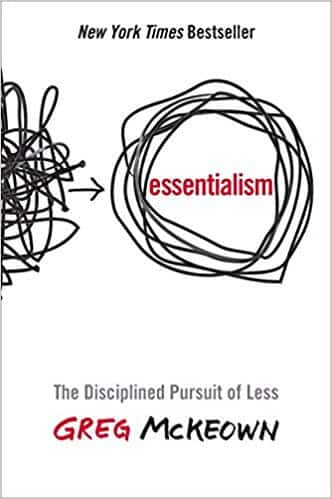
Fortunately, there’s a book for that. Greg McKeown’s ‘Essentialism: The Disciplined Pursuit of Less’ is exactly what it sounds like—a refresher on the belief that less is more.
McKeown discusses effective ways to laser-in on what’s most important. Much of his perspective revolves around anti-multitasking, and the core question, ‘Is it essential?’ Rarely will you find that multiple items on your plate can actually be considered essential.
Although this book is especially relevant for product managers, just about anyone can benefit from McKeown’s words of wisdom. So we recommend this one to just about anybody who wants to trim the fat in their decision-making processes.
What are some product management books on your reading list? Let us know in the comments below.




